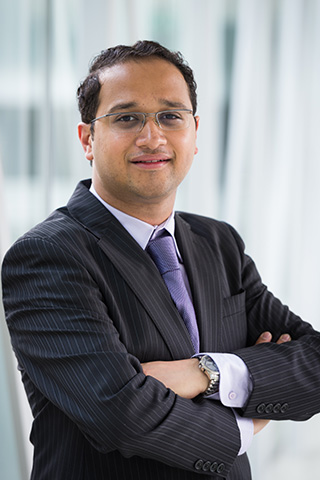
Vivek N. Prakash
Assistant Professor, Physics, Biology, and Marine Biology and Ecology College of Arts & Sciences, Rosenstiel School of Marine, Atmospheric, and Earth Science
vprakash@miami.edu
Dr. Prakash’s team explores how physical principles shape biological processes, with a focus on marine invertebrates. His lab’s research spans two main themes: tissue mechanics and biological fluid mechanics. With respect to tissue mechanics, epithelial cells generate and coordinate forces to sculpt tissues during development and restore structure after injury. The Prakash Lab investigates how these forces propagate across space and time to drive complex tissue deformations in morphogenesis. The team’s previous work revealed that physiological tissue fracture dynamics underlie extreme plastic shape changes in the simple marine animal Trichoplax adhaerens (Nature Physics, 2021), and that bilateral cellular flows generate left-right asymmetry in the early chick embryo (PNAS, 2025). These insights inform tissue and organoid engineering and contribute to frameworks for understanding epithelial integrity in development and disease, including cancer-related epithelial-mesenchymal transitions. With respect to biological fluid mechanics, the ocean is filled with ciliated planktonic larvae whose varied morphologies and ciliation patterns produce rich fluid flows. The Prakash Lab studies how larval shape and behavior relate to their hydrodynamics using experimental flow visualization and theoretical modeling (arXiv, 2025). Previously, they uncovered a hydrodynamic tradeoff between swimming and feeding in starfish larvae (Nature Physics, 2017). In sea urchin larvae, they found that environmental toxins such as PFOA and GenX disrupt ciliary motion and larval swimming (bioRxiv, 2025). These findings have implications for developmental biology and public health, helping to elucidate how chemical pollutants impact larval skeletogenesis, and potentially contribute to a better understanding of the origins of skeletal birth defects.
Keywords: tissue mechanics, biological fluid mechanics, engineering, development, cancer, starfish larvae, sea urchin larvae, environmental toxins, PFOA, GenX




